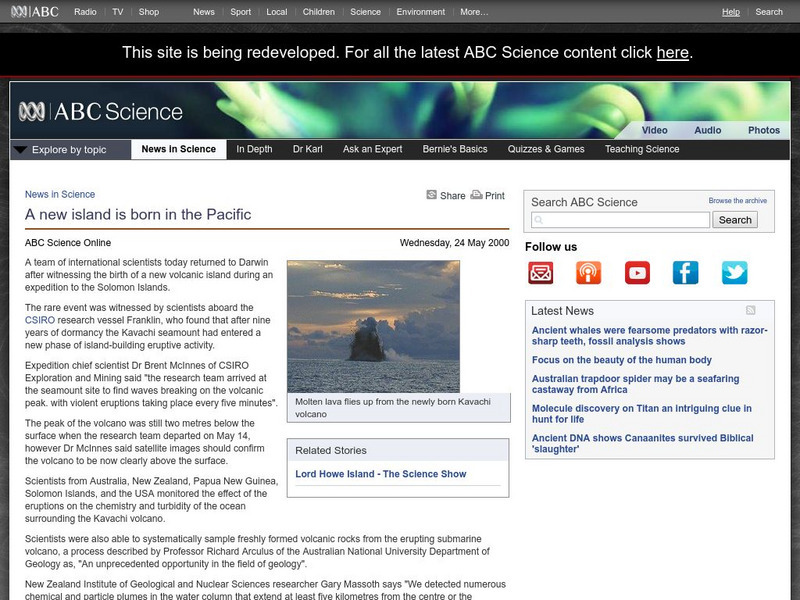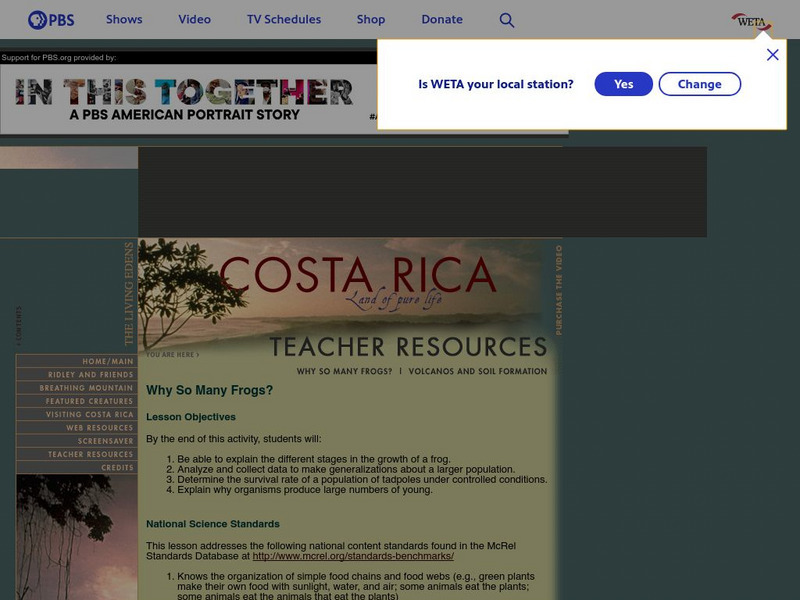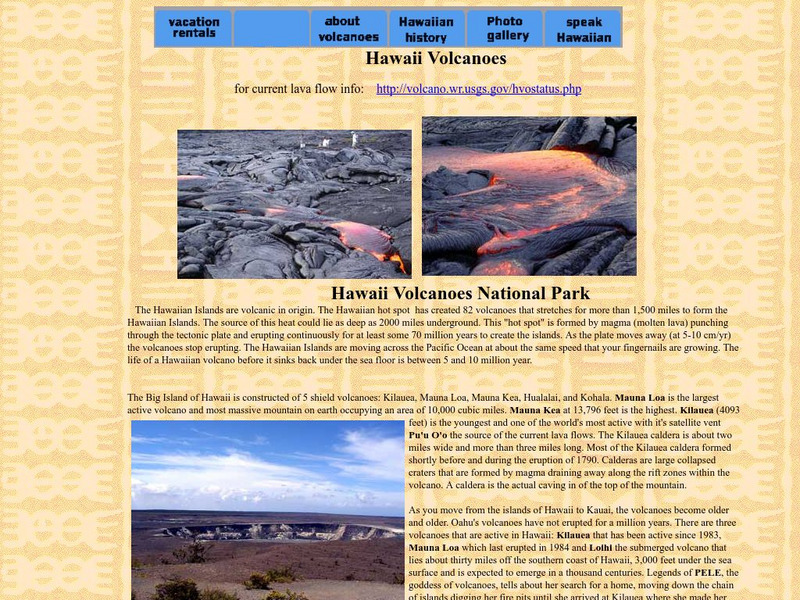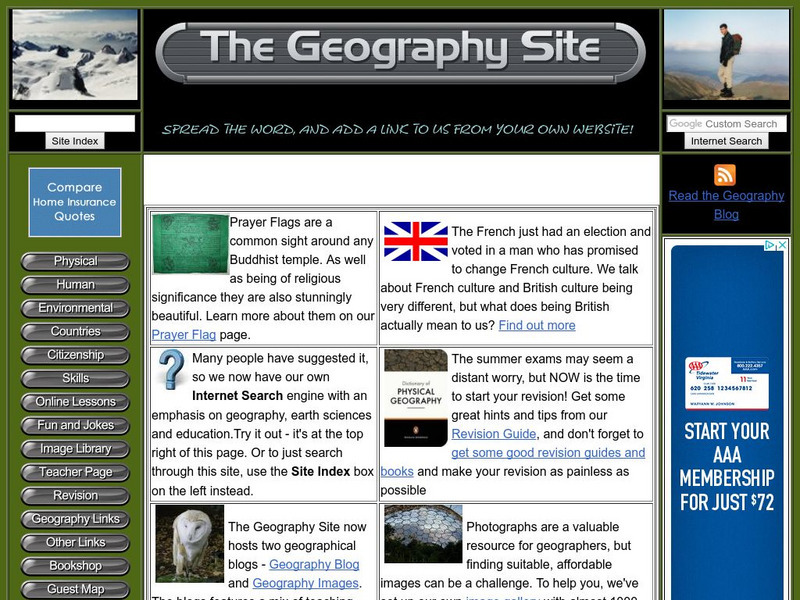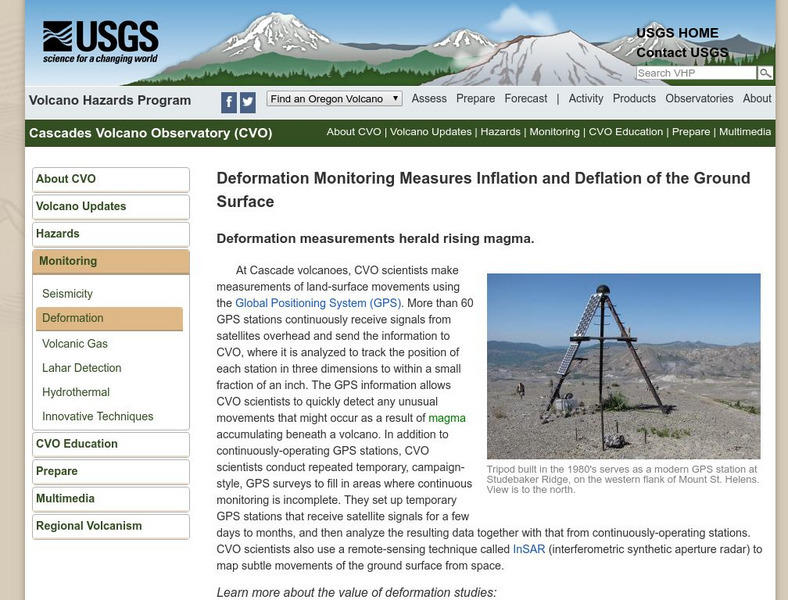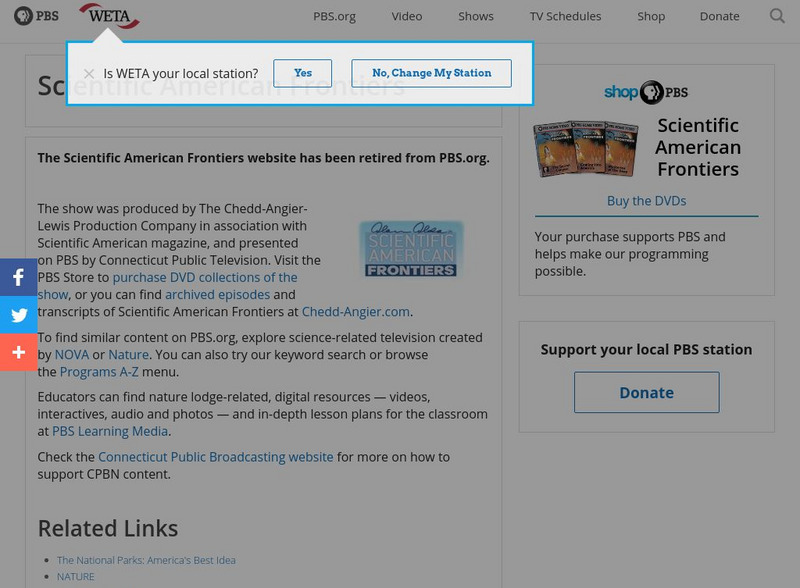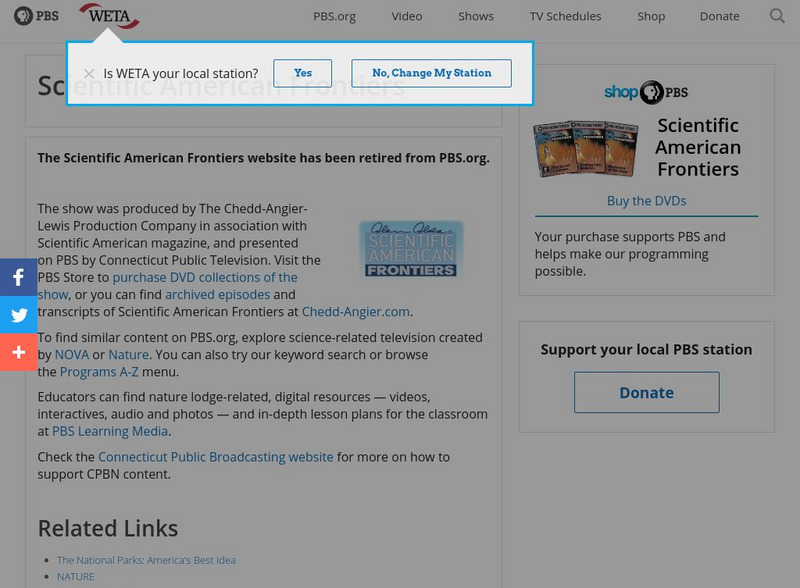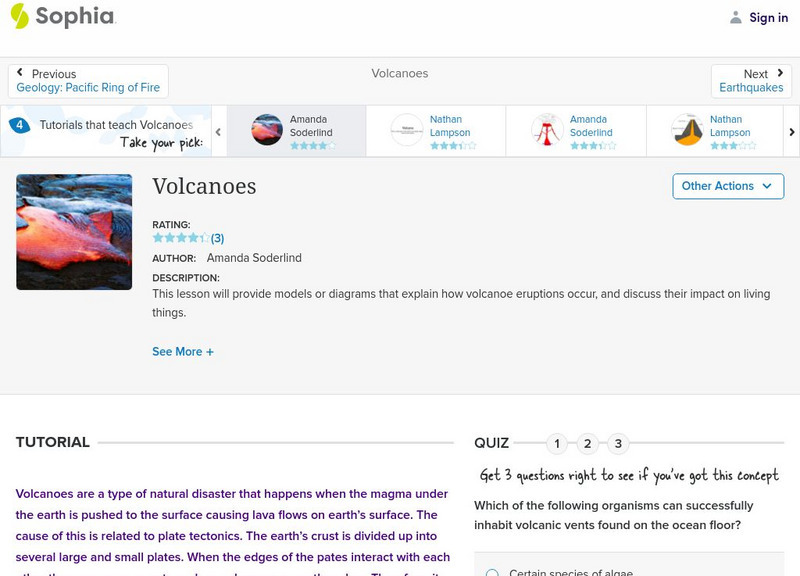Khan Academy
Khan Academy: Why We're All Lava Surfers
Read about people who see plate tectonics close up as they lava surf. Learn about their adventures in this article.
Khan Academy
Khan Academy: Answers to Exploration Questions: Volcanoes
A site answering questions such as volcano type, how scientist predict eruptions, and how scientist know hot spots exist in Yellowstone National Park.
CK-12 Foundation
Ck 12: Earth Science for Middle School
This digital textbook covers core earth science concepts and includes interactive features, real-world examples, videos, and study guides.
CK-12 Foundation
Ck 12: Second Grade Science
This customizable digital textbook covers topics related to second-grade science. It is Next Generation Science Standards (NGSS) aligned.
CK-12 Foundation
Ck 12: Earth Science: Volcanic Eruptions Study Guide
Review volcanoes and volcanic eruptions using this brief review guide.
Other
Nationwide Lifts : Artisan Elevators: Volcanoes and Volcanic Glass
A mountain with a center of hot magma is called a volcano. Under the right circumstances, volcanoes erupt and release a flow of lava. When this happens, they are as beautiful as they are scary and dangerous. Although most people...
Ready
Ready: Kids: Volcanoes
This resource explains volcanoes as well as what you should do to protect yourself before, during, and after a volcano.
Australian Broadcasting Corporation
Australian Broadcasting Corporation: News in Science: A New Island Is Born in the Pacific
From ABC News in Science, this brief article explores the formation of a new volcanic island as found by scientists exploring the Solomon Islands.
abcteach
Abcteach: Earth
[Free Registration/Login Required] Ready made worksheets for any earth science unit on water cycles, the layers of the earth, or volcanoes.
PBS
Pbs Teachers:costa Rica: Volcanos and Soil Formation
Examine why newly-formed lava has little plant life, explain why one generation of plant life allows subsequent plant life to grow in an area and determine why organic soil formation is a slow process.
Other
Deep Hawaii: Hawaii Volcanoes
Brief article provides an overview of the volcanoes that helped to create the islands of Hawaii.
Other
Volcano Live: Krakatau Volcano the Eruption of 1883
The sequence of events that occurred during the time leading up to the eruption of the Krakatau Volcano. Also lists details of the aftermath of the eruption.
Other
The Geography Site
The Geography Site offers many links for your geography research. Links offered are to physical geography, human geography, environment, online lessons, and much more.
Other
Monroe County Women's Disability Network: Volcano
Answers basic questions about volcanoes, such as what they are, how they are classified, and how they work. Includes a short quiz to demonstrate understanding. (The quiz may not work in the main URL link.)
US Geological Survey
U.s. Geological Survey: Volcano Monitoring Using Global Position Systems
Learn how the U.S. Geological Survey uses global positioning systems (GPS) to monitor active volcanoes.
US Geological Survey
Usgs: What Are Volcano Hazards?
The U.S. Geological Survey (USGS) scientists are assessing hazards at many of the almost 70 active and potentially active volcanoes in the United States. In this article, learn how they are closely monitoring activity at the most...
Center of Science and Industry
Cosi Columbus: Chocolate Lava
Learn about the two different types of lava in this hands-on science experiment that uses chocolate as lava. Includes full list of materials, procedures, and scientific explanation of the difference between the two.
PBS
Pbs Teachers: Scientific American: Science in Paradise: Paradise Postponed
Research the eruption of the Soufriere Hills volcano that devastated the island of Montserrat, and create a mini volcano using the chemical reaction caused by mixing baking soda and vinegar.
Instituto Latinoamericano de la Comunicacion Educativa
Red Escolar: Volcanes Del Mundo
In Spanish. Volcanoes are one of the most dynamic, powerful, and visible forces on Earth. Find out detailed information about the different volcanoes around the world.
PBS
Pbs Teachers: Scientific American: Science Italian Style: Eruption!
Research Mt. Vesuvius and scientists' preparations for a future eruption. Produce a television program about volcanoes for middle school students as part of a public information campaign to inform citizens of Washington State about Mount...
Discovery Education
Discovery Education: Volcano Lesson Plan
Use this site to understand how volcanoes work.
Sophia Learning
Sophia: Volcanoes: Lesson 4
This lesson will provide models or diagrams that explain how volcanic eruptions occur, and discuss their impact on living things. It is 4 of 5 in the series titled "Volcanoes."
Sophia Learning
Sophia: Volcanoes: Lesson 5
This lesson will provide models or diagrams that explain how volcanic eruptions occur, and discuss their impact on living things. It is 5 of 5 in the series titled "Volcanoes."
Ducksters
Ducksters: Earth Science for Kids: Volcanoes
Kids learn about the science of volcanoes including how they form mountains, lava, and magma; types such as cinder cone, composite, and shield; watch a video about volcanoes.





